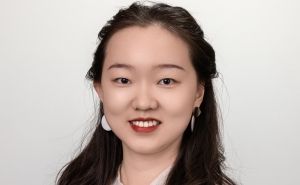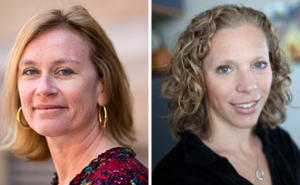In Peru, Baby Formula Reps Target Doctors In Low-Income Community Despite Decades-Old Ban
Study suggests new mothers in Lima’s Villa El Salvador are 10 times more likely to abandon exclusively breastfeeding if doctor recommends formula
A new study led by researchers at the Johns Hopkins Bloomberg School of Public Health suggests that baby formula makers are wielding influence over health professionals in a low-income community on the outskirts of Lima, Peru through unauthorized visits and incentives. Peru has prohibited marketers from promoting infant formula through health care centers and providers since 1982.
This influence, the researchers say, led health professionals to encourage their low-income patients to feed expensive formula to their newborns, according to the study published June 10 in the journal Social Science & Medicine. The World Health Organization recommends exclusive breastfeeding up to six months of age for its health benefits to babies.
Formula feeding in low-income countries can be particularly dangerous to the child’s health due to a lack of hygienic conditions that can prevent thorough cleaning of bottles and lead to the use of contaminated water in mixing formula.
Women who took part in the study—all from the low-income community of Villa El Salvador—were 10 times more likely to stop exclusively breastfeeding their babies in the first two months of life if their doctors suggested they supplement breastfeeding with formula.
“As markets in wealthy countries have begun to stagnate, the marketing of formula in poorer countries is becoming more aggressive,” says lead author Jessica Rothstein, PhD, associate faculty in the Bloomberg School’s Department of International Health. “Our findings suggest that public health authorities in Peru must continue to monitor and enforce laws prohibiting marketing of infant formula to health providers.”
For the study, the researchers used quantitative data from health surveillance questionnaires completed by 214 new mothers between February 2016 through May 2017. In addition, the researchers, in a qualitative companion study, conducted in-depth interviews with 29 of the new mothers from the larger 214 cohort and seven health care professionals working at health centers in the study area. The in-depth interviews were conducted from March through October 2017.
In their in-depth interviews, medical staff told Rothstein and her colleagues that they had been offered incentives, including free or subsidized courses, conferences or trips. Some health professionals also reported distributing powdered formula samples to patients. Four of the 29 mothers said they received vouchers or free formula. Some mothers reported that they were told that formula was necessary for the growth of the child and could help stop a child’s inconsolable crying.
The study suggests the marketers’ tactics are effective, Rothstein said. Surveillance data gathered from 214 new mothers showed that almost half had introduced formula into their babies’ diets by two months of age. Comments from doctors that women had shared in their in-depth interviews with Rothstein and her team appeared to undermine their confidence that breastmilk could satisfy their babies’ hunger. Surveillance data suggested that almost a quarter of the women in the study had received prescriptions for formula, and almost all were provided by doctors.
“It’s particularly troubling that the formula companies are pushing their products on communities that lack the funds to pay for them,” Rothstein said. “We can say with a high degree of confidence that the marketing to providers who serve Villa El Salvador is generalizable to other health care settings in Peru and probably to other developing countries.”
After Peru adopted WHO’s 1982 guidelines, which recommended banning infant formula marketing to the general public as well as to health providers, the country saw a significant upward trend in exclusive breastfeeding. Progress has slowed since 2000, particularly in urban centers and the communities that surround them, and Rothstein and her colleagues wanted to know why.
Their findings are particularly disturbing, Rothstein said, because Peru was among the first of 37 countries worldwide to enact legislation in response to a recommendation made by the WHO almost 40 years ago to stop marketers of infant formula from convincing women to abandon exclusive breastfeeding.
“Our paper suggests that Peruvian policymakers need to take urgent action to stop the unethical behaviors we documented,” Rothstein added. “It’s not enough to have a good law in place if nothing is done to enforce it.”
The study also found that nurses are failing to provide the support new mothers need for breastfeeding. Mothers reported that while nurses encouraged exclusive breastfeeding, they provided little or no explanation. In checkups after delivery, mothers reported that there was little time to ask questions about breastfeeding. Nurses confirmed that personnel constraints, as well as lack of instruction aids such as mannequins, hindered their ability to provide adequate breastfeeding support.
“This means that governments should invest more in breastfeeding counseling and encourage new mothers to stay with it,” says Rothstein.
The women in the study represented four geographical sections of Villa El Salvador, which has a population of 380,000. Field workers visited the new mothers six days a week, taking a careful record of the babies’ health status and what they had been fed over each 24-hour period. In addition, the seven health providers interviewed by the researchers worked at the four community health posts and two major public health centers where the women had given birth.
The study is believed to be the first to draw on daily surveillance data of infant feeding practices to demonstrate the consequences of providers’ formula recommendations.
“It is alarming to see how much influence a doctor can have on whether women breastfeed exclusively or not,” Rothstein said. “Our research shows how effective the formula industry can be at targeting vulnerable mothers through marketing to their physicians.”
The study was supported by the National Institute of Allergy and Infectious Diseases (R01AI108695). Jessica D. Rothstein received funding from the Fulbright-Fogarty Fellowship in Public Health (co-sponsored by the Fulbright Program and the Fogarty International Center at the National Institutes of Health) and a Procter & Gamble Fellowship.
“’The doctor said formula would help me’: Health sector influences on use of infant formula in peri-urban Lima, Peru” was written by Jessica D. Rothstein, Laura E. Caulfield, Elena T. Broaddus, John Muschelli, Robert H.Gilman, and Peter J. Winch.
# # #
Media contacts for the Johns Hopkins Bloomberg School of Public Health: Brandon Howard at 410-502-9059 at brandonhoward@jhu.edu and Barbara Benham at 410-614-6029 or bbenham1@jhu.edu.





